
“Grandpa, what’s the federal deficit?”
“Nothing to worry about, sweetie.”
“But politicians are always talking about it. And they make it seem terrible.”
“The country has far bigger problems, pumpkin.”
“Did they worry about the deficit when you were in the Clinton administration?”
“Oh yes. In fact, that’s when it all started. I even remember the day… .”
December 7, 1992. Pearl Harbor Day. The economic team meets with Bill at Blair House, across the street from the White House. As head of the team, I have to deliver the bad news: “The projected deficit is much bigger than we anticipated. By 1997 it will be $350 billion — $60 billion higher than we originally thought.”
Bill isn’t upset. In fact, he seems buoyed by the challenge. “We certainly have our work cut out for us!” he says enthusiastically. At the end of the meeting he almost leaps out of his chair.
I’m glad he’s enthusiastic. What worries me is the deficit is already framing our discussions about what we want to accomplish. Getting it “under control” is becoming the most important measure of success, and we’re not even in office yet.
The deficit isn’t the core economic problem. The bigger problem is that the earnings of half of the American workforce have been stagnant or declining for years. This should have been what we focused on at today’s meeting. We should have discussed how to increase public investments in education, job-training, healthcare, and everything else that American workers need. And how to encourage corporations to share more of their profits with their workers.
I’m as guilty as anyone. More guilty. After all, I’m supposed to be in charge of this process. Instead, I succumbed to the deficit obsession.
Where is the obsession coming from? Since the election, the media has been hounding us about the deficit. Why are they so interested in the deficit now, when the topic was virtually ignored during the dozen years when Reagan and Bush caused it to balloon? Probably because we’re the first Democratic administration in a generation with a Democratic House and a Democratic Senate. Everyone expects Democrats to spend because for years Republicans have demagogued about “tax and spend liberals.”
Nobody paid attention to Reagan’s profligacy. He inherited a manageable debt ($914 billion) and a modest deficit ($59 billion in 1980). But by cutting taxes — mostly on the rich (he lowered the top rate from 70 percent to 28 percent) — and by cranking up defense spending, Reagan began running deficits of $200 billion a year “as far as the eyes can see,” in the words of his budget director, David Stockman. Now, twelve years later, the debt is more than $4 trillion and the yearly deficit more than $300 billion (and, as I pointed out to Bill, projected to be $350 billion by 1997), and Republicans and the media are demanding that the deficit be reduced. But because a large portion of the American workforce is earning less than it did before and can’t afford higher taxes, the only realistic option for reducing the deficit is to cut spending.
So now we have to clean up the mess Reagan and Bush left behind. As long as the economic goal is described as “getting the deficit under control,” our hands are tied. That was Reagan’s and Stockman’s plan all along — to “starve the beast,” in Stockman’s words, so the next Democratic administration couldn’t do much of anything.
Yet Americans are hurting. That’s the bitter irony. The deficit has become a symbol of a government that seems out of control at the very time when large numbers of people are feeling they have less and less control over their lives. The government’s failure to balance its checkbook seems particularly galling to an American public having trouble balancing its own family checkbook.

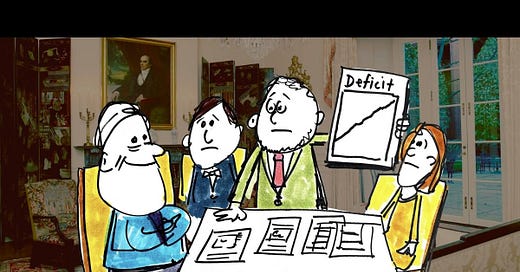

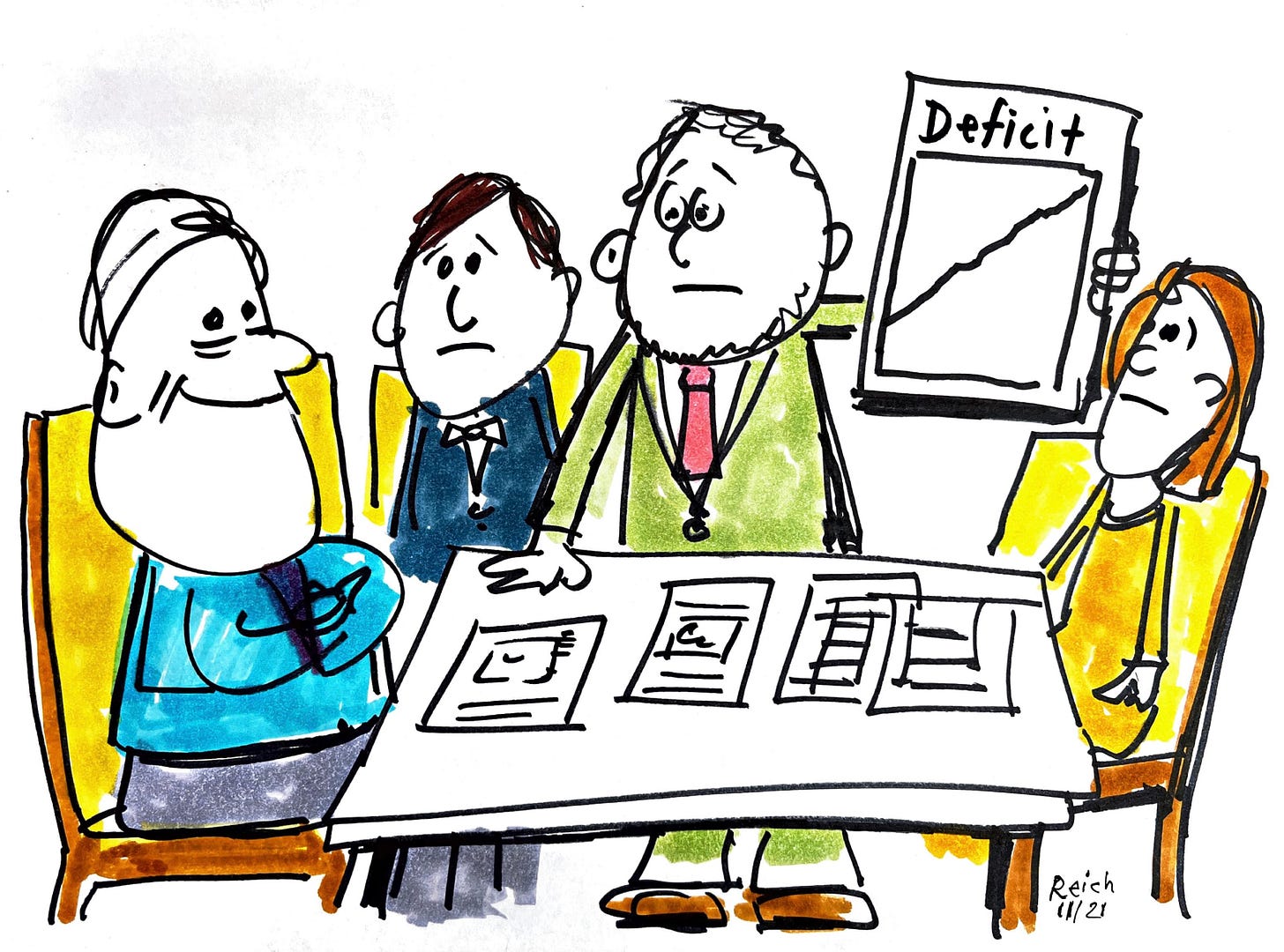
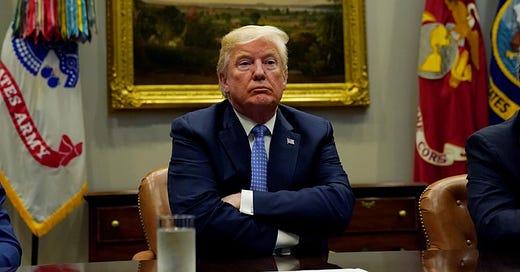

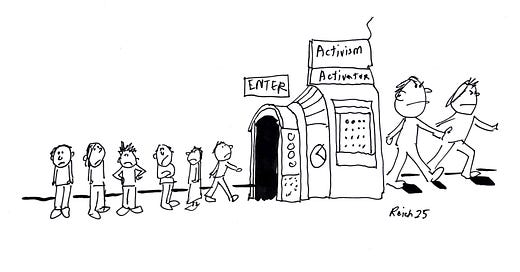

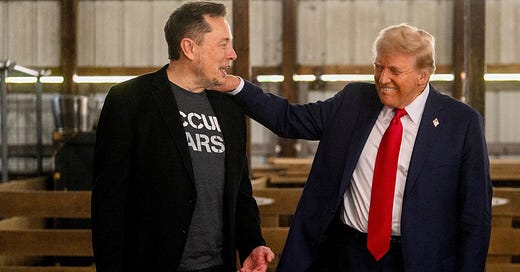

Ever see a parade with elephants? There's always some schlimazel walking behind the elephants with a big push-brush and a bucket to scoop up the manure left by the passing of the elephants.
Now look at any Democratic administration that followed a Republican one (whose symbol, in a quirk of fate, turns out to be an elephant). See any similarities? Democrats always have to clean up the mess that was made by the uber-patriotic, true Amurrican GOP, expert at destruction but incompetent at positive creation - of anything at all.
Did you see Obama try to put in major changes so that the depression caused by the GOP at the end of 2009 might never happen again? The Republicans blocked him at every turn. Or go back to FDR having to clean up after Hoover, or Grant having to clean up as best he could after Johnson.
One of the very worst situations to be in is Biden having to clean up after 4 years of a totally incompetent and corrupt Trump administration. So of course the national media is down on Biden because he didn't fix everything magically in his first week of office.
Ain't no justice!
I am in awe at how well republicans succeed in controlling the narrative. The American public deserves some transparency; why don't democrats fight back with the same wit and energy (that does not include you, Mr. Reich) to give it to us??? What makes them so afraid of reaching out to their constituents, especially when the stakes are so high, by hammering down some factual truths on mainstream media the same way their republican colleagues do with their lies?